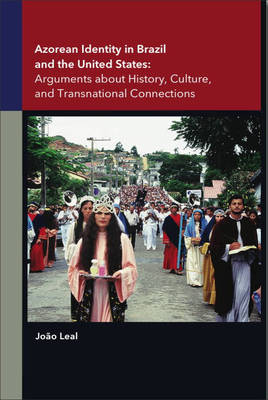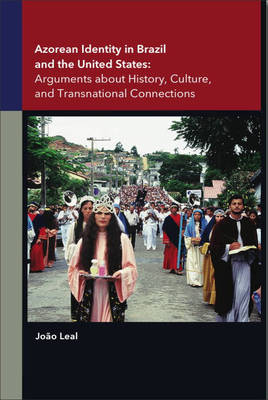
Bedankt voor het vertrouwen het afgelopen jaar! Om jou te bedanken bieden we GRATIS verzending (in België) aan op alles gedurende de hele maand januari.
- Afhalen na 1 uur in een winkel met voorraad
- In januari gratis thuislevering in België
- Ruim aanbod met 7 miljoen producten
Bedankt voor het vertrouwen het afgelopen jaar! Om jou te bedanken bieden we GRATIS verzending (in België) aan op alles gedurende de hele maand januari.
- Afhalen na 1 uur in een winkel met voorraad
- In januari gratis thuislevering in België
- Ruim aanbod met 7 miljoen producten
Zoeken
Azorean Identity in Brazil and the United States
Arguments about History, Culture, and Transnational Connections Volume 1
João Leal
€ 27,45
+ 54 punten
Omschrijving
This comparative investigation of Azorean identity formation in southern Brazil and southeastern New England explores how immigrants and their descendants actively create local, national, and transnational connections and discourses of belonging. These two outposts of the Azorean diaspora have very different settlement histories: the Azorean settlement of Santa Catarina dates back to the mid-18th century and has not been augmented by any new immigration for over 250 years; Azorean emigration to southeastern New England is largely a 19th and 20th century phenomenon that has led to the formation of large ethnic communities. The surprise at the heart of this book is that despite these very different immigration histories, collective interest in Azorean culture and public manifestations of Azoreanness are quite prominent in both places. The contrasts between these two very differently situated identity narratives offer insight into the variable and sometimes rather counter-intuitive processes of ethnic formation. These findings are pertinent to debates about the nature of ethnic identity and transnational communities.
Specificaties
Betrokkenen
- Auteur(s):
- Vertaler(s):
- Uitgeverij:
Inhoud
- Aantal bladzijden:
- 192
- Taal:
- Engels
- Reeks:
- Reeksnummer:
- nr. 14
Eigenschappen
- Productcode (EAN):
- 9781933227313
- Verschijningsdatum:
- 12/04/2011
- Uitvoering:
- Paperback
- Formaat:
- Trade paperback (VS)
- Afmetingen:
- 156 mm x 227 mm
- Gewicht:
- 312 g

Alleen bij Standaard Boekhandel
+ 54 punten op je klantenkaart van Standaard Boekhandel
Beoordelingen
We publiceren alleen reviews die voldoen aan de voorwaarden voor reviews. Bekijk onze voorwaarden voor reviews.









